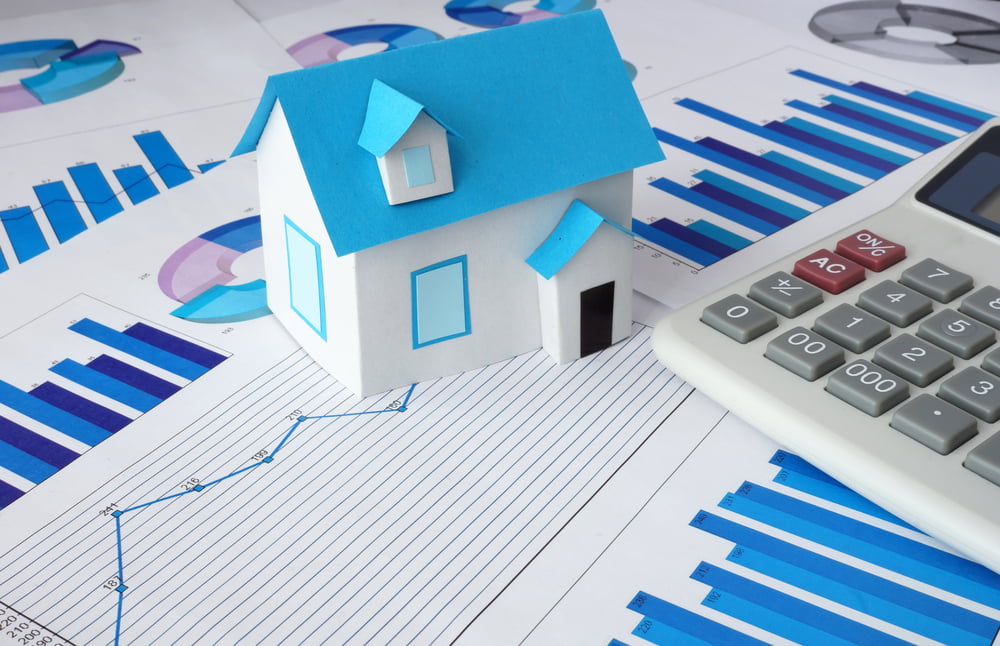We’re officially in a recession, but there is currently still a healthy demand for properties. So what does this mean for property prices in the coming months?
The Office for National Statistics (ONS) has confirmed that the UK is in a recession for the first time in 11 years. It has been described by the ONS as the worst recession since records began, with the GDP (Gross Domestic Product) shrinking by 20.4 per cent between April and June. It shrank by 2.2 per cent between January and March.
What defines a recession?
A recession is defined by the GDP falling in two consecutive quarters. The GDP is measured in various ways but is most commonly calculated by the total spend of the nation. This includes household spending, government spending, investment and the value of exports to other countries.
Consumer spending fell by over 23 per cent in the second quarter of this year but this was largely due to lockdown. What matters now is whether people will start to spend again. The hospitality sector has been the worst hit, with productivity falling by 75 per cent in recent months.
What makes a strong economy?
In normal circumstances, economies tend to grow. A strong economy means that businesses make more profits and there are more jobs. During a recession, job cuts are made, and the government may reduce spending. This can cause house prices to fall as existing homeowners who might have been upgrading to a bigger property may be unable to afford to do so. First-time buyers may be nervous about buying or unable to afford it if they lose their jobs. Consumer confidence can and does have an impact on the property market.
On the flip side, anyone seeking to buy a property could get a bargain. If property demand falls, then there will be fewer people house hunting. First-time buyers may get a good deal. Some homeowners may want to sell quickly. However, it’s important to not rush into any hasty decisions, even if you think you’re getting a bargain. Make sure the property you have in mind is a good choice and doesn’t require expensive repairs that could eradicate any possible saving.
Money to lend
So what impact will the recession have on the property market? This recession is very different from the one we had in 2008 where the global banking system became short of funds. Lenders have the money to lend, albeit they are being more cautious. We know that lockdown caused the recession and now that many restrictions have been eased and businesses are open again, we can try to bounce back.
There is some good news. The ONS said that the economy grew by 8.7 per cent in June when the government began to ease restrictions and many businesses could trade again. The Bank of England has said that the UK slump will be less severe than expected. It predicts the economy will shrink by 9.5 per cent this year, compared to its earlier prediction of 14 per cent in May. It chose to change its forecast due to energy usage and travel data indicating a faster recovery than previously predicted. It has also said that the economy will grow in the third quarter of 2020.
A healthy property market
At the time of writing, the property market is currently still buoyant. ‘The UK now being in a recession is broadly an irrelevance, as this was caused by the shutdown,’ says MBA’s Sales Manager Phil Leivesley.
The real test for how quickly we can bounce back as a nation will be at the end of October, when the furlough scheme ends. ‘Whilst it appears that the economic recovery has started, it would seem likely that there will be a further contraction in the latter stages of this year,’ says Phil. ‘The end of the furlough scheme is likely to trigger a significant number of redundancies, and only then will the economy truly feel the pain that Rishi Sunak deferred in the spring.’
It’s hard to predict the future as we live in extremely unusual times. Chancellor Rishi Sunak told the BBC that the government was ‘grappling with something that is unprecedented’. He went on to say that we are living in ‘a very difficult and uncertain time’.
Phil concludes: ‘So far it seems like the housing market has just carried on regardless. Many commentators waved this “mini boom” away as simply being pent-up demand from the lockdown, but it seems much more than that. It’s true that we’re heading for very challenging times. However, that doesn’t seem to be deterring a lot of people who feel they have secure employment and finances.’

